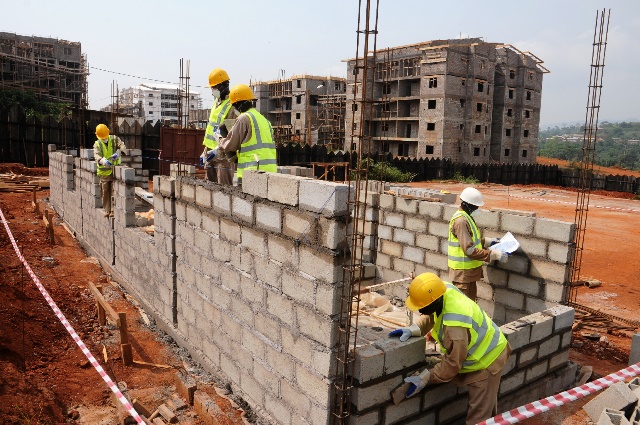At least 53 million people in African countries live in slum settings despite the remarkable strides made towards meeting the sustainable development goals intended to bridge the housing deficit.
Compared to other continents, Africa still experiences an acute housing need that requires urgent attention. The current housing deficit is fueled by the lack of stable financing caused by the high unemployment rates in the continent.
For African countries to emerge from the current housing dilemma there must be a deliberate attempt to avail flexible financing options. Payday loans provide the much-needed solution to the current housing dilemma in the continent. Most Africans lack the financial credibility to qualify for conventional financing. But with payday loans, Africans can now access loans and meet their housing financing demands with ease. Since the introduction of payday loans in the continent, there have been notable developments in housing quality.
Countries that have embraced the concept of payday financing are way ahead of the pack regarding the quality of life. But how have these loans until payday managed to change the scope of housing within such a short time?
A New Dawn in Financing
Payday loans refer to the unsecured financing extended to individuals based on their checks and often held for future deposits. When borrowers apply for these loans, they commit to writing a personal check for the exact amount borrowed, including the financing charge. The concept of payday loans is not new to Africans. However, up until recent years, there has been an unfounded misconception around this option to financing. Today, more Africans are utilizing the benefits of payday loans to achieve personal development objectives such as housing.
The Current Housing Statistics
African countries had the highest rates of slum dwellers before the year 2005. At close to 61.7%, the rate of slum dwellers at the time seemed like a puzzle too hard to crack.
However, since the introduction of payday loans, urban growth rates have taken an upward trend as more Africans seek every available option to improve housing quality. Before introducing payday loans in the continent, most Africans could not access secured loans given their employment status.
A massive chunk of these Africans is unemployed. On the other hand, most of those in employment are contracted on a temporal basis, a situation that complicates their ability to access financing. The burden of poor housing has seemed to ease over the last few years with the changing scope of access to short-term flexible loans.
Renting a decent apartment in any urban dwelling in African cities has always been reserved for the middle class with modest incomes. Most Africans in the lower economic class consider housing options in poor neighborhoods where the quality of life is appalling given their inability to achieve financial freedom.
The situation underscores the reason why payday loans are a timely solution to the housing dilemma in Africa.
First, most payday loans are unsecured. This means that borrowers in Africa can access these loans to better their living standards without necessarily worrying about their financial background.
This aspect has dramatically impacted how Africans view the concept of housing. When the population has multiple financing options, they can explore varying alternatives to support their housing needs. The changing scope of housing in Africa is a reaction to the availability of quick unsecured financing through payday loans.
The element of flexibility is also at the heart of the changing scope of quality housing in Africa. Payday loans are short-term in nature, which means that borrowers can pay back these loans on their next paycheck. A borrower’s income determines how much they can access as the total payday loan.
As such, it’s easy to limit the cycle of debt for borrowers. Most African households have managed to readjust their housing needs and preferences based on their payday loan limits. The situation is responsible for the changing extent of housing quality in most African countries.
Compared to other loans, payday financing is easy to access. Within 24 hours of application, a borrower can access these loans and deal with recurrent expenses such as rent. With such an option, more Africans are finding the confidence to consider better quality housing for their families.
In the next few years, the continent may gradually emerge from the current poor quality of housing that is synonymous with the African continent.
The extent of convenience Africans experience with payday loans has helped remove the barrier to financing that most traditional financing institutions often place on borrowers.
Housing is often a recurrent concern for employees who only depend on salaries for sustenance. However, with payday loans, the freedom of financial access has eased the burden of sourcing for alternative sources to manage recurrent housing bills as they fall due.
Transforming Africa
Africa is no longer the dark continent it was in the past. As more Africans become empowered, the scope of livelihood is changing. One of the significant developments in the continent is the changing dynamics around housing as financing becomes easily accessible. The ease, flexibility, and unsecured nature of these loans will have a substantial long-term impact on housing in the continent.
Also Read
Top 6 African cities leading the way to a green future
Critical infrastructure attacks: Why South Africa should worry

